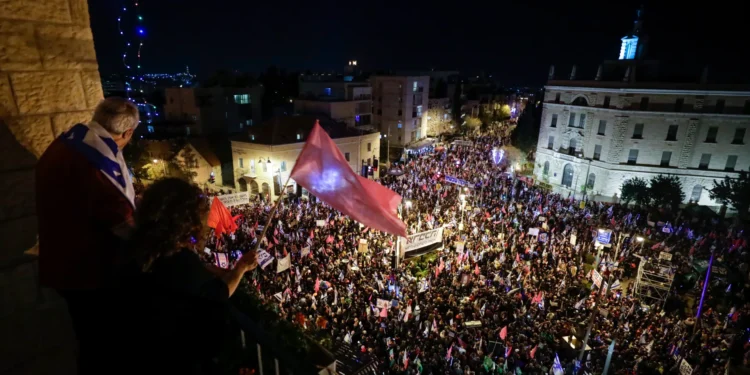As ceasefire negotiations with Hamas linger, a groundswell of discontent has swept across Israel, with thousands rallying to demand the resignation of Prime Minister Benjamin Netanyahu. The protests reflect deep-seated frustrations over Netanyahu’s handling of the ongoing conflict with Hamas and his perceived reluctance to pursue a resolution that prioritizes the release of Israeli captives held in Gaza.
Growing Dissatisfaction
After six months of intense fighting in Gaza, public sentiment in Israel has turned sharply against Netanyahu. Tens of thousands have taken to the streets in recent days, echoing calls for early elections and expressing dissatisfaction with the prime minister’s leadership. A recent poll by the Israeli Democracy Institute revealed that a majority of the population rates Netanyahu’s performance during the conflict as “poor” or “very poor.”
Criticism of Netanyahu’s Strategy
Critics argue that Netanyahu’s strategy in dealing with Hamas has been driven more by political calculations than by genuine efforts to secure the release of Israeli hostages. Despite mounting pressure to reach a ceasefire agreement, Netanyahu has been accused of prolonging the conflict to maintain his grip on power. The prime minister’s rejection of a proposal from Hamas for a comprehensive deal, which included the release of captives, withdrawal of Israeli forces from Gaza, and a permanent ceasefire, has further fueled discontent.
Internal Divisions
Netanyahu’s position has been complicated by internal divisions within his coalition government. Hardline figures such as Finance Minister Bezalel Smotrich and National Security Minister Ben Gvir have threatened to withdraw their support if Netanyahu pursues a ceasefire agreement they deem unfavorable. This internal dissent has undermined Netanyahu’s ability to negotiate effectively with Hamas and has left him politically isolated.
Public Pressure for Change
Amidst the ongoing conflict, there is a growing consensus among the Israeli public that Netanyahu’s leadership is no longer tenable. While many still support military action against Hamas, there is a widespread belief that Netanyahu’s failure to secure the release of Israeli captives is unacceptable. Calls for early elections have gained momentum, with protesters demanding a change in leadership to break the political deadlock and pursue a more effective strategy for resolving the crisis.
Uncertain Path Forward
As pressure mounts on Netanyahu to step down, the path forward remains uncertain. While some believe that early elections are inevitable, others speculate that Netanyahu may attempt to cling to power despite mounting opposition. The outcome of the protests and the fate of the Israeli captives held in Gaza hang in the balance, underscoring the high stakes involved in the ongoing crisis.
The wave of protests sweeping across Israel reflects deep-seated frustrations with Prime Minister Netanyahu’s handling of the conflict with Hamas. As calls for his resignation grow louder, the country faces a pivotal moment that could shape its future trajectory in the midst of a protracted and increasingly contentious conflict.
















